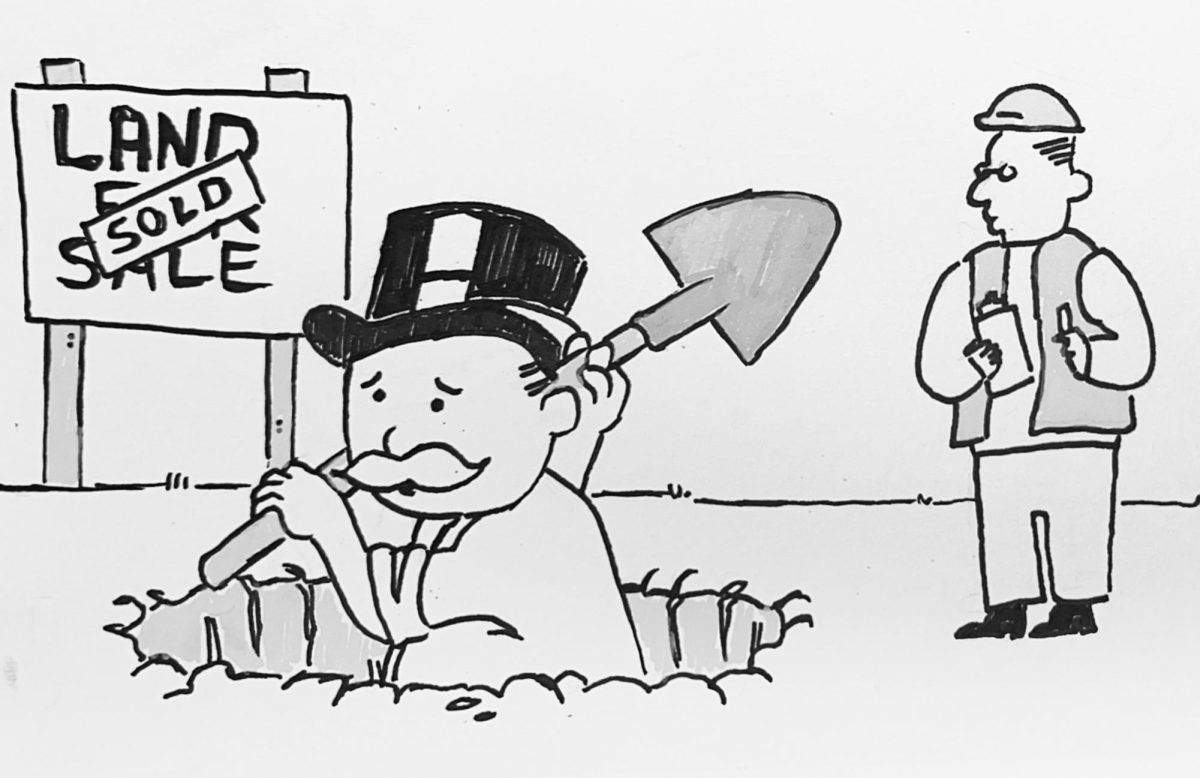 Two hunters are hanging out in the woods when one suddenly collapses. He seems to stop breathing, and his eyes glaze over. The other hunter, shocked and upset, gets out his cell phone to dial 911.
Two hunters are hanging out in the woods when one suddenly collapses. He seems to stop breathing, and his eyes glaze over. The other hunter, shocked and upset, gets out his cell phone to dial 911.
“My friend seems to have died! What do I do? What do I do?”
“Relax. It’s okay. First, let’s make sure he’s definitely dead,” says the operator in a comforting voice. There’s a silence on the line, followed by the sound of a gun shot. The hunter picks up the phone again.
“Okay, now what?”
That’s a joke.
Here’s another joke: Why can’t Chinese couples make Caucasian babies? Because two Wongs don’t make a white!
Oops. You didn’t laugh. That was offensive, wasn’t it? You’re even thinking about writing a letter to the editor complaining about unacceptable words being printed in the Pio.
It’s obvious why one is funny and one isn’t: One targets hunters (usually upper middle class, male, white conservatives), and the other targets Chinese people. One uses regular language to momentarily trick you, and the other one uses racist language to attempt to take you off guard.
When you think about it, it’s funny how controversial humor can be.
Ask Kyle Harbert, for instance, whose comedy routine at Tuesday’s comedy competition walked a fine line between acceptably distasteful and far too nasty (memorably making sweeping statements about the War on Terror, Chinese people and frat boys). His routine didn’t go over particularly well with the Whitman crowd, bringing a few laughs here and there when he stereotypically bashed the President.
Or, more memorably, ask Don Imus, or Michael Richards, or even Ann Coulter. All three have paid dearly for crossing out of humor territory into the vast land of overt offensiveness.
There’s a big question lying underneath all of this: What makes something funny?
It’s a psychological question, I know, and it’s extremely subjective. Language scholar Christian Cook, however, summed it up nicely in an essay he wrote on comedy in 2003.
“I think that our need to feel intelligent comes into play a lot in finding things funny. … Maybe humor is actually the overwhelming joy at feeling intelligent. Somebody tries to put on their shoes standing up and falls over in the process. They look foolish, we therefore feel intelligent as we are not the one falling over trying to put on shoes,” he writes.
That makes sense. We laugh at the joke about the hunter because we understand how the language has been manipulated to trick us. At the same time, we don’t laugh at the racist joke because it insults our intelligence.
I’m insulted by offensive jokes because they overlook so many tiny, human details about life. Can you rightly make a joke about Chinese people, for instance, without acknowledging thousands of years of racial profiling and Western oppression? Religious intolerance and a failing Communist regime? Internment camps and persecution?
The answer is that yes, you can; but it makes you look pretty uninformed.
The intelligence factor explains why smartly offensive humor is so often so funny. I’m in stitches every time I see Sarah Silverman speak, for example (although my opinion on Ms. Silverman is not necessarily a popular one).
In 2001, Silverman got in trouble for telling Conan O’Brien that you could avoid jury duty by writing “something inappropriate, like ‘I hate chinks.'”
Silverman was trying to make satire out of the racist thought process, she said. But co-founder of the Media Action Network for Asian Americans (MANAA) Guy Aoki didn’t get it: He said her use of the slur on-air was “inexcusable.”
A lesser woman would have apologized at that point, but Silverman refused to do so. I like Sarah Silverman because she refuses to cover up how blatantly hypocritical and downright ridiculous so much American thinking has always been and continues to be. Her humor is refreshing, although her caricatures are at times chillingly accurate.
Of course, there’s a danger to what Silverman does. It’s easy to miss her point and take her sarcastic humor at face value. At that point, there’s the threat that throwing around racial slurs and sexist remarks reinforces the idea that those slurs by themselves are okay, or even funny.
But I don’t think it’s that dangerous. At the end of the day, Silverman is laughing at the darkest things in our past and present histories: the most serious and human of our qualities: and in my mind, that’s the greatest thing anyone can hope do to.
For the record, our Sarah has used her experience with Aoki to her advantage. She talks about it in her stand-up routines these days, saying the incident taught her that racism is bad: “And I mean bad, like in that black way.”
All in all, I think human beings are far too serious. I know very few people who are able to really, genuinely laugh at themselves. If every person was suddenly able to have a good, solid laugh at himself, I firmly believe that every major social or political conflict in the world today would suddenly cease to exist.
Ethel Barrymore once said, “You grow up the day you have your first real laugh at yourself.” And intelligent comedians can do just that: They seek out their own imperfections, magnify them and laugh. What makes these comedians truly humorous is their innate, modest ability to find what’s fundamentally hilarious about the most seemingly solemn aspects of life.








